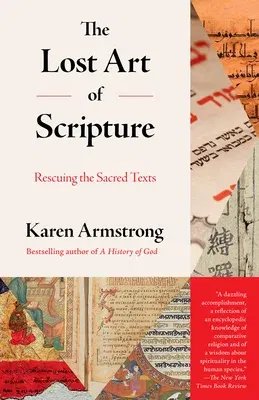A book that shines fresh light on the world's major religions to help
us build bridges between faiths and rediscover a creative and spiritual
engagement with holy texts--from the New York Times bestselling
author of A History of God****
**
"[An] unusual, often dazzling, blend of theology, history, and
neuroscience" --The New Yorker
**
The significance of scripture may not be immediately obvious in our
secular world, but its misunderstanding is perhaps the root cause of
many of today's controversies. The sacred texts have been co-opted by
fundamentalists, who insist that they must be taken literally, and by
others who interpret scripture to bolster their own prejudices. These
texts are seen to prescribe ethical norms and codes of behavior that are
divinely ordained: they are believed to contain eternal truths. But as
Karen Armstrong shows in this chronicle of the development and
significance of major religions, such a narrow, peculiar reading of
scripture is a relatively recent, modern phenomenon. For most of their
history, the world's religious traditions have regarded these texts as
tools that enable the individual to connect with the divine, to
experience a different level of consciousness, and to help them engage
with the world in more meaningful and compassionate ways.

